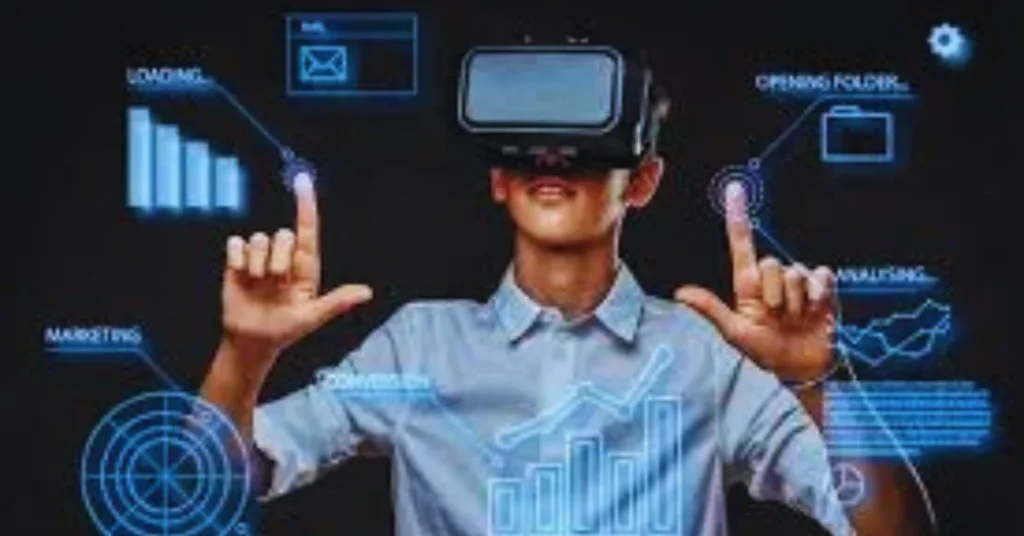The Impact of Technology on Daily Life
Introduction
The impact of technology on daily life is profound and far-reaching. From the moment we wake up to the time we go to sleep, technology influences nearly every action we take. Whether it’s using a smartphone alarm, checking emails, or streaming music, modern life is seamlessly intertwined with technology. Understanding how these advancements affect our routines, relationships, and overall well-being is crucial in today’s fast-paced digital world.
Evolution of Technology in Everyday Life
Technology has evolved dramatically over the past century. The industrial revolution marked the beginning of mechanical innovation, but the digital revolution transformed how humans live and interact. The internet, personal computers, smartphones, and artificial intelligence have reshaped modern existence. Today, we live in a hyperconnected world where information travels instantly, and technology continues to make our lives more efficient and accessible.
Technology in Communication
One of the most visible impacts of technology on daily life is in communication. Social media platforms, instant messaging apps, and video conferencing tools have made global communication instant and effortless. Families and friends separated by distance can connect face-to-face through video calls, while businesses can collaborate remotely in real time. However, the convenience of digital communication also brings challenges—such as reduced face-to-face interactions and the rise of online misinformation. Finding a balance between online and offline communication is essential.
Read More: How Technology Is Changing Education in 2025
Technology in Education
The education sector has been revolutionized by digital tools. Online learning platforms, e-books, and virtual classrooms have made education more flexible and accessible than ever before. Students can learn from anywhere, at any time, using laptops or mobile devices. The impact of technology on daily life in education is especially significant after the global shift toward remote learning. However, it also highlights the need for digital literacy and equal access to technology to avoid widening the educational divide.
Technology in Work and Business
Technology has redefined how we work and conduct business. The rise of remote work, digital collaboration tools like Zoom and Slack, and automation has transformed workplaces. Employees can now work from home, attend virtual meetings, and share documents in seconds. Businesses benefit from improved efficiency and data-driven decision-making. On the other hand, constant connectivity can blur the line between work and personal life, leading to burnout and stress. The key lies in managing technology use to maintain a healthy work-life balance.
Technology in Healthcare
The healthcare industry has experienced one of the most beneficial impacts of technology on daily life. Telemedicine allows patients to consult doctors remotely, while wearable devices track vital signs and promote preventive health care. Artificial intelligence assists in diagnosing diseases more accurately and efficiently. These innovations have improved access to healthcare, especially in rural areas. Yet, challenges like data privacy and dependence on digital systems remind us of the importance of maintaining ethical and secure technological practices in healthcare.
Technology in Entertainment and Leisure
Technology has revolutionized how we relax and have fun. Streaming services like Netflix and Spotify, gaming consoles, and social media provide endless entertainment options. People can watch movies, play games, or listen to music anytime and anywhere. However, excessive screen time and digital dependency have raised concerns about mental health and physical inactivity. While technology enhances leisure, it’s important to consume digital entertainment mindfully.
Impact on Daily Routines
The integration of smart technology into daily life has made routines more convenient. Smart homes equipped with voice assistants, automated lights, and thermostats have simplified household management. Online shopping, digital banking, and navigation apps save time and effort. However, this convenience can lead to overdependence, making individuals less self-reliant. The impact of technology on daily life is most effective when used to enhance, not replace, human effort.
Social and Psychological Impacts
Technology affects not only our activities but also our minds and relationships. Social media connects people but can also lead to feelings of isolation and comparison. The constant need for digital validation affects self-esteem, while information overload can cause stress. On the other hand, digital communities provide support and connection for those with shared interests. The challenge lies in maintaining mental balance while embracing the digital lifestyle.
Economic Impact
The digital revolution has reshaped global economies. Technology has created countless job opportunities in fields like IT, software development, and digital marketing. E-commerce and fintech have made business more accessible to entrepreneurs. However, automation and artificial intelligence are replacing some traditional jobs, creating a demand for new skills. The impact of technology on daily life is both an opportunity and a challenge for the workforce of the future.
Environmental Impact of Technology
Technology’s influence on the environment is twofold. On one hand, it leads to e-waste and increased energy consumption. On the other hand, it drives innovation in sustainability—such as electric vehicles, renewable energy, and smart grids. Green technology aims to reduce the ecological footprint of human activities. By promoting responsible consumption and recycling, technology can support a healthier planet.
Future Outlook
The future promises even greater technological integration in daily life. Artificial intelligence, robotics, and the Internet of Things (IoT) will continue to automate tasks, personalize experiences, and improve efficiency. Smart cities, autonomous vehicles, and virtual reality will redefine how people live and work. However, ethical use, data privacy, and equitable access will remain critical issues that need careful management to ensure technology benefits everyone.
Conclusion
The impact of technology on daily life is undeniable. It has transformed communication, education, work, healthcare, and entertainment, offering convenience and connection like never before. Yet, with these benefits come challenges—privacy concerns, digital addiction, and social isolation. The goal should not be to reject technology but to use it responsibly and mindfully. By striking a balance between innovation and human values, we can ensure that technology continues to enhance, not control, our lives.



